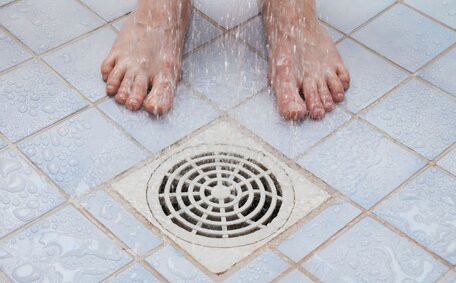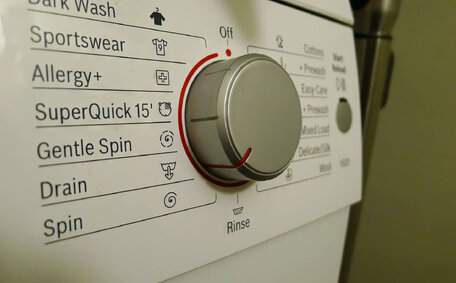
Baking Soda & Vinegar for Cleaning
Using baking soda & vinegar separately for cleaning is very effective; but mixing them dilutes their cleaning power. Learn how to use them properly.
Read MoreGas leaks in your vicinity are extremely dangerous and require immediate attention. Natural gas is highly flammable and leaks put you at risk of explosion or fire. Symptoms include dizziness, nausea, fainting, and even death.
Gas leaks can emit hazardous carbon monoxide — an odourless, colourless gas causing symptoms of poisoning.
Natural gas companies add a rotten egg smell to alert people of gas leaks, so If you detect this odour, it is crucial to act fast to address a possible gas leak in your vicinity.
Firstly, switch off your home’s main gas valve to stop the flow of gas. This action will halt the flow of gas in your house and minimise the danger. Evacuate the area promptly, ensure main gas sources are off and avoid flames or electrical switches during evacuation. Upon detecting a gas leak, Once safely outside, dial 000 to report the gas leak to emergency services.
While waiting for emergency personnel, do not re-enter the building or attempt to find or stop the leak yourself. The inherent unpredictability and the explosive risk that gas can pose should not be underestimated. Only professionals with appropriate licences should inspect and manage repairs of leaking gas lines.
The dangers of gas leaks underscore the importance of immediate response. Any delay could jeopardise not just your safety but also others in the vicinity, increasing the urgency of addressing a gas leak in your surroundings. Always err on the side of caution when it comes to your safety around potential gas leaks by contacting professionals right away.
There are several key signs that may indicate a gas leak within your home:
If your gas bills are suddenly much higher than normal without any change in usage or appliance upgrades, this could signify a leak.
Listen closely to your gas meter, pipes, and appliances for unusual sounds, as these could indicate a leak. A hissing or whistling sound often indicates a gas leak, necessitating immediate safety measures.
An unpleasant rotten egg odour is added to natural gas so that leaks can be more easily detected. Pay attention if you notice this smell inside or near your home, as it could indicate a leaking gas line in your vicinity.
Soil displacement near your property from an underground gas leak can cause visible disturbances in dirt, grass, or gravel.
Gas line leaks on your property can cause vegetation sitting above underground gas lines to brown, wilt or die off due to gas starving plant roots of oxygen.
If your gas stove or heater flames burn more orange than blue or display inconsistent shapes, this often indicates impurities from a gas leak.
To confirm a gas leak, apply soapy water to the suspected area and look for bubbles — a definitive sign of leakage.
Once a gas leak has been detected, the next crucial step is pinpointing the exact source of the leak before attempting any repairs.
Begin by carefully examining all accessible gas pipes and appliances in the vicinity where the gas odour is detected. Inspect for visible damage, such as cracks or dents, in both rigid and flexible gas pipes or connectors. Focus on pipe joints and appliance connections, which are frequent sites requiring swift leak repair.
To identify a gas leak, spray a soapy water solution onto connection points and look for bubble formation.
Do not attempt to repair leaks yourself; instead, turn off your gas valve and call a professional immediately. Due to their complexity, gas leaks must be addressed by certified gas fitters to ensure safety. If there’s a suspected dangerous leak, turn off the gas valve, evacuate and immediately call for emergency services.
Gas systems require highly specialised knowledge and equipment to address leaks safely. Attempting repairs without professional knowledge poses severe risks, such as explosions, fires, or carbon monoxide poisoning. Only licenced gas fitters, with their in-depth training, can thoroughly inspect, detect and repair your gas leaks.
If you suspect a leak, immediately turn off the main gas and ventilate the area if possible. Evacuate everyone from the building and make sure no ignition sources are nearby. In the event of gas line leaks at your residence, it’s imperative to call your local professional gas fitting service for emergency assistance. Reach out to Lilyfield Plumbing at 1300 349 338 or email [email protected] for swift and reliable leak solutions.
Our skilled team promptly evaluates and addresses leaks, offering repairs or full line replacement to prevent future issues. We use advanced detection tools to pinpoint leak locations quickly and address the problem at its root cause to prevent future issues.
Upon finding damage or a leak in a gas line, you must decide between repair or complete replacement. There are a few key factors that influence this choice.
Old galvanised steel pipes could take on corrosion over time and often reach the end of their lifespan, requiring replacement. Depending on its condition, you may need gas line section replacement or a complete redo of the entire line. Copper, polyethylene and corrugated stainless steel pipe materials tend to have longer durability.
The extent of damage, location of the leak and estimated repair costs are also considered. Localised repairs can often seal leaks and restore integrity cost-effectively. But multiple leaks or widespread deterioration indicate a new gas line installation may be the better option.
A qualified gas fitter, adept at fixing leaking issues, will assess these variables along with pipe diameter, pressure testing results and compliance with current gas piping codes before recommending the right solution for your home.
When a gas line leak or damage is identified, the repair process begins by thoroughly assessing the issue to determine the necessary steps. The first priority is to shut off the main gas valve to isolate the leak without delay.
Repairs require using materials matching the existing gas pipes for both continuity and safety. All work is completed in line with strict gas piping regulations and pressure testing is conducted to validate repairs before restoring gas supply.
Connections should be resealed with thread tape or sealant and ensured to be properly bonded.
To mitigate any gas buildup in confined spaces, the installation of appropriate ventilation systems may become necessary. All repairs should conclude with proper labelling and documentation of gas lines. Only licenced professionals should carry out repairs to ensure work is done safely, legally and to the highest standards.
Gas fitting work in Australia must comply with strict safety standards and regulations to ensure hazards are minimised. Key requirements include:
All gas pipe systems and appliances must be designed, constructed and installed in line with this overarching standard. It stipulates materials, testing, ventilation, commissioning and certification requirements.
Covers the management of gas distribution pipelines, network integrity, operating pressures and emergency response. Adherence is mandatory for infrastructure gas piping.
Each Australian state and territory governs gas fitting licencing, prescribed qualifications, audit compliance and penalties for non-conformance through respective gas fitting regulations.
Compliance helps guarantee proper materials and procedures are utilised by qualified technicians to provide reliably safe gas supply. Failing to meet requirements risks substandard work, dangers from leaks and even legal prosecution.
While gas leaks often seem to occur suddenly, there are preventative maintenance steps that can mitigate risks of future leaks:
Conduct periodic visual inspections along the gas line in your property for any signs of early wear, damage or loose fittings. Check pipe joints for corrosion and listen for subtle hissing.
Fix any leaking or minor pipe damage, dents or cracks as soon as possible before the situation escalates. Use thread sealant on stubborn leaks and ensure everything is properly tightened.
Routine annual inspections by professionals can help detect and prevent gas system deterioration.
Educating household members on gas safety and fast response procedures is crucial for handling home gas leaks.
Being proactive reduces gas leak incidents and the risk of future leaks. In the instance of line leaks, your go-to should be Lilyfield Plumbing, with their proven expertise to swiftly diagnose and remedy issues, restoring your gas supply securely.
Old metal gas pipes that have corroded over decades of use often need to be replaced. Newer pipes made of plastic and corrugated stainless steel have greater longevity. The older the pipe and more outdated the material, the more replacement makes sense.
If the gas leak is isolated to a small section of pipe, a simple repair can seal the breach. But if corrosion and cracks have compromised a longer length, running a brand new pipe may be safer and more cost-effective in the long run.
Recurring leaks after repairs suggest deeper problems within the gas line. If new leaks emerge after sealing an area, it generally indicates that replacement is the better option.
New polyethylene and stainless steel gas line materials are tougher and last considerably longer than outdated iron and steel pipes. Installing modern, durable gas pipes during replacement can prevent complications for many years.
For the best advice on whether your gas line requires targeted repairs or wholescale replacement, the licenced technicians at Lilyfield Plumbing can assess all these variables and recommend the most prudent solution.
If you suspect a gas leak, it is critical to take safety precautions while awaiting a professional gas fitter to address the issue.
Ensure everyone leaves the property immediately and avoids re-entry. Gas leaks can lead to dangerous explosions or carbon monoxide poisoning, compromising your health if ignited or inhaled.
Avoid manipulating electrical switches since sparks could ignite the gas. It is safest to leave electricity alone until the leak is addressed.
Smoking cigarettes or other ignition sources should be strictly avoided near the site of the leak. An open flame could trigger catastrophic explosion and fires.
Inform neighbours of the leak so they may take necessary precautions.
Stand clear of the property in a safe, open area where gas is unlikely to accumulate. Refrain from trying to inspect or repair the leak independently.
Following these guidelines helps prevent gas-related emergencies while a licenced professional is on the way. Safety remains the top priority when dealing with dangerous gas leaks.
Using baking soda & vinegar separately for cleaning is very effective; but mixing them dilutes their cleaning power. Learn how to use them properly.
Read MoreBlocked drains are usually caused by buildup of hair, grease, debris and more in your pipes. Fix the problem with professional drain unblocking services to get your drains flowing freely again. Contact us for affordable drain unblocking.
Read MoreWhen you suspect a gas leak or damaged gas line, contact a licensed gas fitter immediately to locate and repair it. A gas line repair involves sealing leaks, replacing corroded or damaged pipes and testing all connections for safety before restoring gas supply.
Read MoreLilyfield, 2040 NSW
We will call back as soon as possible.




